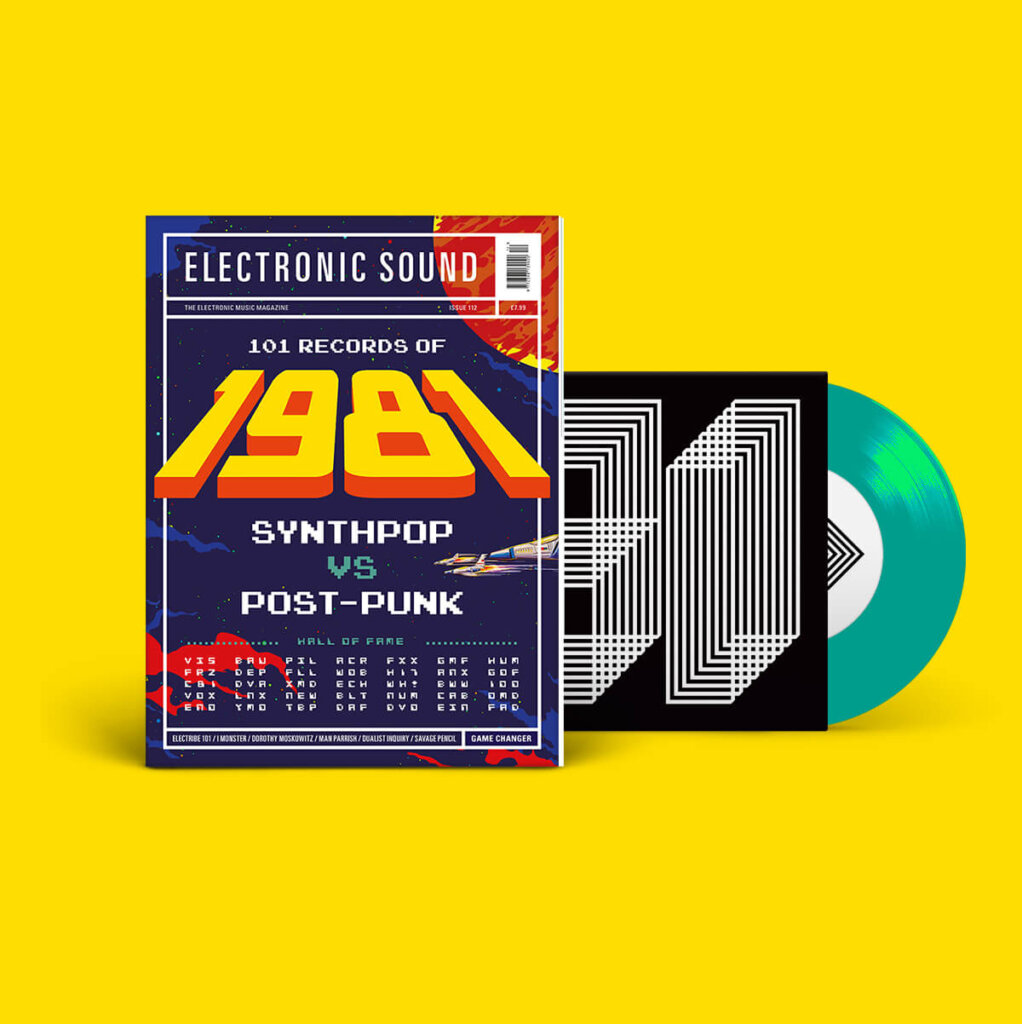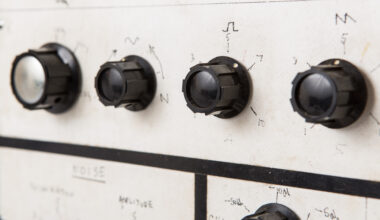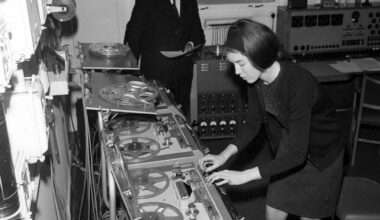Despite his new solo album being entirely instrumental, Depeche Mode’s Martin Gore isn’t a man lost for words
Martin Gore sits in his Santa Barbara home, pining for the English rain. “It’s sunny here,” he tells me, but without the glee with which most Brits would say it. “It’s always sunny here. We had a drought last year.”
So you’re missing the grey of Great Britain? “Sometimes, I guess,” he laughs. We’d expect no less of a man who wrote most of the songs that helped bubbly Basildon synthpoppers Depeche Mode evolve into dark and broody depressed Mode, the most successful electronica act of all time.
We don’t, unfortunately, have “all time” today. We have limited chat minutes allocated to us as Gore promotes his new solo instrumental album, ‘MG’, so perhaps we’d better stop talking about the weather.
“Electronica can still sound… otherworldly,” he muses. Then, just to confirm that he is still essentially British, he adds semi-apologetically, “I suppose.”
Martin Gore is a long way in time and space from 1980, when he joined three fellow Essex boys in Depeche Mode (having cut his musical teeth — while working as a bank cashier — in an acoustic duo called Norman And The Worms). After hearing OMD, The Human League and The Normal, they decided synths were the way forward.
When ‘New Life’ propelled them onto ‘Top Of The Pops’ (they went to the BBC studio, with synths, by train), they initially seemed like the rosy, chirpy face of electropop, the opposite of the many Mysterons darkly muttering of dystopia and robot overlords. But when Vince Clarke left, Gore suddenly became writer-in-chief. He had to learn on the job. They got bigger, then more morose, and faintly perverse.
As the 1980s bled into the 90s, albums like ‘Black Celebration’, ‘Music For The Masses’ and ‘Violator’ rebranded Depeche Mode as the kings of kinky and the emperors of existentialism. Gore himself, as a contrast to Dave Gahan’s stentorian stylings, took tenor vocals on standouts such as ‘A Question Of Lust’. By the ‘Songs Of Faith And Devotion’ era, they were huge in America. Now they’ve shifted over 100 million records, making them one of the best-selling bands in history and giving them a fair claim to having changed the course of popular music.
With enormous fame – and debauched tours – came trouble and stress. Gore fell into alcoholism. By now an Ivor Novello-winning vegetarian, who got married for the second time last year, it appears he’s cleaned up his act. Gore still occasionally courts controversy though, as in 2012 when he said Simon Cowell should be shot, causing the pop mogul to fume with rage.
“I’m not advocating violence, but I think somebody should shoot Simon Cowell,” he said. “His influence in the music industry over the last God knows how many years; it’s just like so many people think that’s what music is.” Cowell replied, steam coming off him, “I read Martin Gore wants to shoot me. He was in Depeche Mode. Do you realise how weird and stupid that makes you? Why I am angry about weirdo Gore is that a ton of people have got shot this year, and people like weirdo Gore encourage this.”
Well, we’re with the “weirdo” on this one.
Mode remain, even now, bigger than the British realise. Gore has spoken of the “incredible respect” the band get worldwide, with “journalists turning up shaking because they’re so nervous about meeting us”. I’m not shaking, but I am stirred by ‘MG’, Gore’s latest evocative emission.
Like latter-day Mode, the ‘MG’ album conveys a sense of quivering, doomy psychodrama, as pulses and drones interact with sprinkles of abrasive noise and sweeter sun-showers. It operates in a not-far-off-minimalism vein to begin with, gradually hustling up to more physical beats and stabs. It succeeds in pulling off “cinematic” and “sci-fi” without ever resorting to the shorthand tropes and cliches which often deposit electronica on that terrain, whether it’s appropriate or not. As it creeps from tentative crawl to confident crescendo, from guileful glitch to glittering groove, ‘MG’ bears its own atmosphere and personality.
Gore isn’t one for proclaiming a complex manifesto. ‘MG’ possesses track titles that, with the exception of ‘Europa Hymn’, are one word each. What was the thinking behind that ploy?
“It was just a theme I liked… ‘Swanning’, ‘Pinking’, ‘Trysting’, ‘Creeper’, ‘Stealth’, ‘Crowly’. It began to seem like a journey. There’s always something which sends me down a certain path, even subconsciously. It might be quite obscure, even cryptic…”
He tails off. So it’s up to us to work out the deep hidden meaning of it all?
“Yeah,” he chuckles. “Good luck with that!”

In the 1980s, when the Mode first emerged, electronica seemed like an emblem of the bright shiny future. Strangely, it still does. Would you concur?
“Well, yes… it’s that otherworldly thing again,” says Gore. “I mean, people sort of eventually got used to it in the 80s, after the initial shock. The surprise element had pushed us into people’s ideas of ‘the future’. It really shouldn’t still be having that effect now. But with just one chord or one bassline, you can create an ominous, futuristic sound, and then it’s about what you do with it. Whether you take it anywhere.
“I think there’s an arc towards some affirmation on this album, perhaps over the last few tracks, beginning with ‘Crowly’. I tried to keep all the tracks within a fairly short time limit. Quite a few have no drums and emphasise the melodies, yet some are uptempo and verging on techno. So I did want some emotional contrast in there.”
Gore was in great voice on his 2003 covers album, ‘Counterfeit 2’. And Dave wasn’t in the room. Were you tempted to sing at all on ‘MG’? Didn’t you miss singing?
“But you see, the idea was to make an instrumental album: it was a purist idea. And that was quite easy to stick to. I wasn’t tempted to sing any more than I was tempted to pick up a guitar, because either of those elements takes you in another direction entirely. I mean, as a songwriter I’m aware of the power of words when they’re juxtaposed with chords and melody, but here I wanted something pure, filmic, atmospheric, emotional.”
How would you imagine the ideal ‘MG’ listener experiencing this album? Staring at nocturnal cityscapes? Lying down alone in a Zen trance?
“Ha-ha – either would be fine. It seems to be getting a good reception; one thing I’ve heard back is that people like driving to it.”
So it might work as the score to one’s own personal road movie?
“Or a bedsit movie too…”
The choice of scale, big or small, is yours.
This may be a more intimate release, but Martin Gore is well used to grand scale, as Depeche Mode have grown accustomed to being revered as lords of stadium-synth around the world. It was as the band’s last tour, for the ‘Delta Machine’ album (“There was something magical about that album”), wound down in 2013 that Gore began composing these numbers. Initially, he’d thought some of them might fall under the band’s remit.
“Three or four of them, in fact. But I decided not to use them there, as we simply had so many songs. Even after the deluxe edition of ‘Delta Machine’, we still had some good ideas left over. I didn’t want them to fade away and not get used, so I worked them up. And they in themselves gave me further ideas. After the long tour finished, I wrote some more. And despite the separation of time between the two sets of tracks, they somehow gelled… I don’t know if I can tell the difference now. Sometimes with Depeche Mode we’ve put instrumentals on albums, yes, since way back, but with Dave writing now we sort of have a lot of songs.”
There are faint traces of Angelo Badalamenti in this work. As an instrumental composer, do you have influences?
“Well, Badalamenti is big for me. And I loved ‘Selected Ambient Works’ by Aphex Twin. I mean, I play it a lot, but it’s not like this. Electronic music is a broad church these days. The term is often used for everything from chart singles made on computers right through to the most experimental and avant-garde sounding music. It’s diffused throughout almost everything.”
Surely that must please you as an early pioneer? Martin Gore isn’t entirely thrilled by this idea, however.
“I don’t want to be sour, but it’s been a double-edged sword. I like that electronic music has made it possible for people to get their ideas out, to create in their bedrooms, on a small budget. That’s fantastic. But sometimes… well, my only slight gripe is that a lot of these people shouldn’t be making music, because it sounds horrible. I mean, as long as they have fun, I suppose, OK. But don’t expect us to listen to it, don’t impose it upon the world!”
Get the print magazine bundled with limited edition, exclusive vinyl releases



Famously though, Depeche Mode originally brought a punk do-it-yourself ethos to synthesisers, proving you didn’t have to be able to play like Vangelis to make records.
“Yes, and I do like that ethos. When we started out, it felt like what we were doing was a continuation of punk. People were confused by us – we’d turn up at early gigs carrying our synths in suitcases and just plug in. Our budget was rock bottom. We’d do it all on a £200 synth. But it was all about the ideas, that’s the main thing. It doesn’t matter what genre you’re working in, electronica or pop or blues, you’ve got to have songs and ideas.”
And that’s more important than the equipment? Because having explored both analogue and digital over the years (Dave Gahan has said that Gore has a “fetish for buying vintage gear on eBay – almost daily”), you now seem to mesh the two together.
“There are so many sounds now and you can be as creative as you like. There are so many manufacturers; your choices are blossoming on a daily basis. A lot of the sounds on the Eurorack format are great. Some of the modular formats are basically clones of Moog, and now Moog are revealing their own modular – and they all sound great. There’s no shortage of options to play around with.”
So will you be playing around with Depeche Mode again next?
“At some point, I hope, sure,” he says, as Mode devotees in their global millions swoon gratefully. “I’m writing some actual songs for the group. An album? Well, that would be the idea! It always feels like a daunting mountain to climb when you start, when you first put pen to blank paper. Then it always gets easier when you’re a few tracks in and you’ve got the feel of it… like writing a novel, I imagine.”
It’s not like Martin is out of practice. Is it true you’re in your home studio at least five days a week every week, come rain (not that you get that in Santa Barbara) or shine?
“Oh yes. I enjoy it. It’s what I do. It’s not like I have a great idea every day – some days I’m just patching away on modular synths. It’s a learning curve with every module. I can’t learn every single one or I’d probably just be doing that till I die. But yes, I love being in there. I might be lost if I didn’t do it. It’s my identity.”
A Song For Europe
‘Europa Hymn’ – and surely there’s rarely been a more perfectly chilly, glacially romantic, classic electronic track title since early Ultravox – seems to carry a kind of nostalgia for a Europe of old. A gothic, literary idea of the continent that exists less and less now. It’s like the wordless essence of Roxy Music’s ‘A Song For Europe’ distilled, an air of nostalgia for Hemingway’s Venice or Anais Nin’s Paris lingering in the trees.
“Yes, there might be something that feels romantic about it,” says Gore. “I don’t know, maybe this is thinking too much into it, but it does have a ‘lost’ feel. But I like to think there’s an optimism that comes through on the album, that in the end says all is not lost. I hope it feels like a film.
“I felt there was time to complete a solo album of instrumentals, which somehow I’ve never done before. Obviously there was VCMG with Vince Clarke, but that was more techno. With this, I liked the idea of a more atmospheric, filmic record. Now clearly it’s not an actual film soundtrack, but quite a few tracks have a sci-fi feel to me. It was after I noticed it running through a few of the tracks that I knew I had a solid idea here.”
‘MG’ is out on Mute






